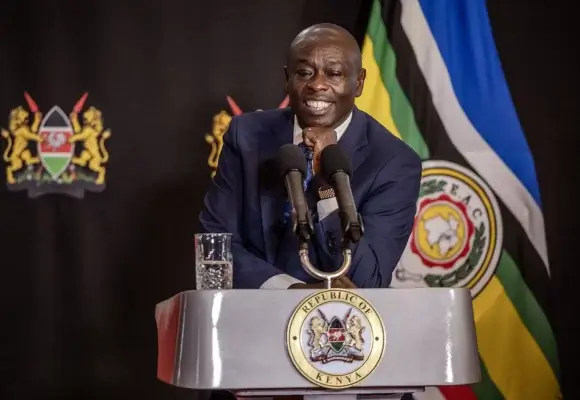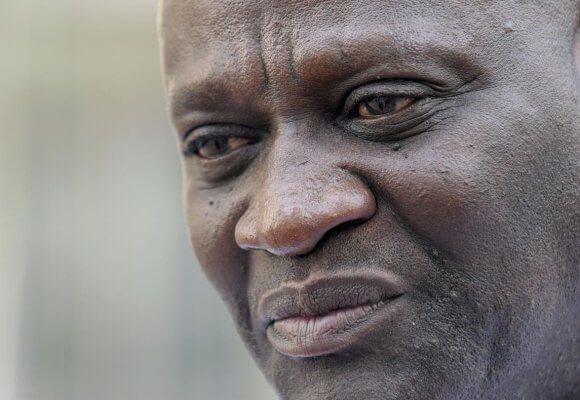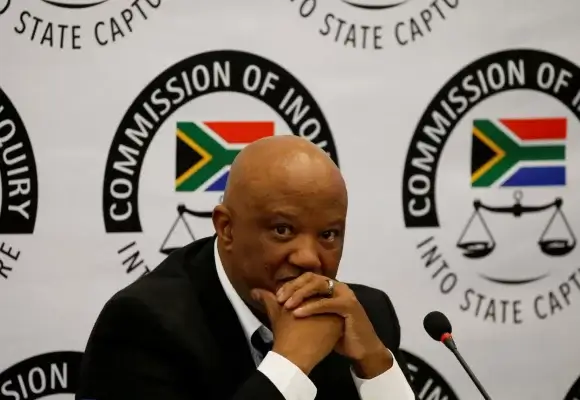|
LISTEN TO THIS THE AFRICANA VOICE ARTICLE NOW
Getting your Trinity Audio player ready...
|
The United States is considering shuttering a significant number of its diplomatic missions across the world, with Africa bearing a notable brunt of the proposed closures, according to an internal U.S. State Department document obtained by CNN.
The proposal, crafted under the guidance of the Department of Government Efficiency, a body reportedly backed by tech mogul Elon Musk, outlines the closure of nearly 30 U.S. embassies and consulates, as part of the Trump administration’s wider push to reduce the size and cost of the federal government, including its global diplomatic reach.
At least six embassies in Africa could be closed if the plan moves forward. These include U.S. embassies in Lesotho, South Sudan, the Republic of Congo, and the Central African Republic—nations where U.S. presence has often played a stabilizing role in regions affected by conflict, fragile governance, or humanitarian crises. A consulate in South Africa is also marked for closure.
While the administration has not made a public announcement, the internal document indicates a sweeping recalibration of U.S. diplomacy, not only in Africa but also in Europe, Asia, and the Caribbean. The closures, if approved, would be the most significant rollback of U.S. embassies in recent memory.
Secretary of State Marco Rubio has yet to officially endorse the recommendations. When asked for comment, State Department Spokesperson Tammy Bruce declined to discuss the document, directing inquiries to the White House. She cast doubt on the accuracy of early reports, citing the evolving nature of internal deliberations.
“I would suggest that you check with the White House and the President… what we tend to see is reporting that is early or wrong, based on leaked documents from somewhere unknown,” she said.
As of now, the administration has named ambassadorial nominees for only two of the embassies marked for closure; those in Malta and Luxembourg.
In Africa, the potential closures raise serious concerns about Washington’s commitment to the continent at a time when global competition; particularly from China and Russia, is intensifying. U.S. embassies not only handle visa processing and assist American citizens, but also serve as key platforms for aid distribution, peacekeeping coordination, intelligence gathering, and cultural diplomacy.
For countries like South Sudan and the Central African Republic, the U.S. embassy has been a crucial channel for humanitarian support, democratic governance programs, and regional conflict resolution. The closure of these posts may signal a broader retreat of U.S. interest in African stability and development.
Moreover, local analysts fear that withdrawing American personnel and resources from these hotspots may create a vacuum that rival powers could easily fill.
Beyond Africa, the internal document recommends closing 10 embassies and 17 consulates, including in France (five consulates), Germany (two), Bosnia and Herzegovina (two), the United Kingdom, South Korea, and the Caribbean. It also suggests downsizing major missions in Somalia and Iraq, countries central to U.S. counterterrorism operations.
To maintain diplomatic coverage, the document proposes that responsibilities be redistributed to neighboring U.S. outposts, or that new “FLEX-style light footprint posts” be created—lean diplomatic offices with limited staffing and narrowly defined priorities.
It also calls for “dual-hatted leadership” at multi-mission locations, such as U.S. representation to the OECD and UNESCO in Paris, and the consolidation of consular operations in countries like Japan and Canada.
According to the State Department’s internal assessment, embassies and consulates were evaluated on criteria such as facility condition, operating costs, security, and workload. Yet critics argue that such a spreadsheet-style approach ignores the strategic and symbolic importance of maintaining a presence in fragile or geopolitically sensitive nations.
In regions where U.S. embassies have operated as lifelines for civil society organizations, journalists, and marginalized communities, the planned pullback could have far-reaching consequences. Diplomats also play critical roles in promoting trade, education exchanges, and cultural understanding, elements that may be difficult to replicate from afar.
The fate of these recommendations lies with the White House and Congress. Should the plan move forward, it would mark a sharp departure from decades of bipartisan support for robust U.S. engagement abroad.
The reshaping of America’s diplomatic footprint is part of a broader restructuring across government agencies under the Trump administration’s second term, with Musk’s Department of Government Efficiency leading the charge for leaner, tech-driven federal operations.











LEAVE A COMMENT
You must be logged in to post a comment.